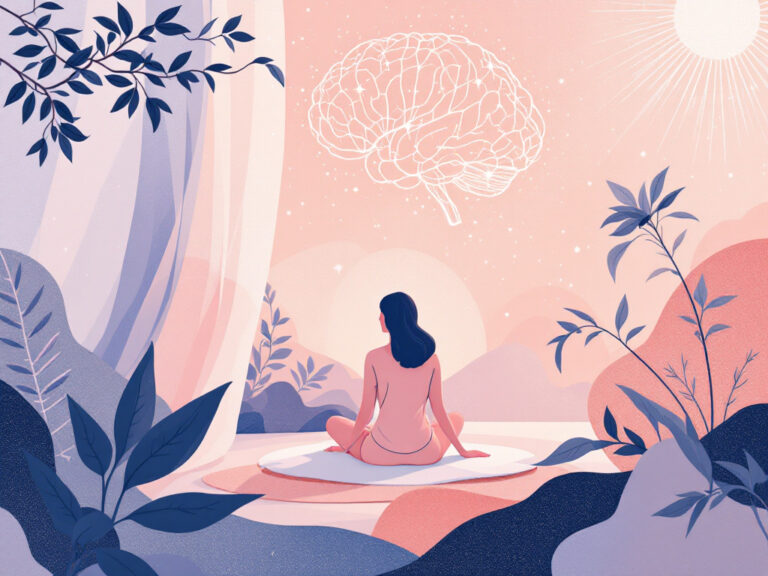Understand aftercare benefits
Definition and goals
When you complete a residential, outpatient or detox journey, joining an aftercare program in Arizona is your next step to wellness. This phase of care delivers continuous support with individual and group sessions, sober living guidance and relapse prevention planning. The primary goal is to help you maintain momentum in recovery, equipping you with the skills and resources needed to navigate everyday challenges.
Aftercare is tailored to your unique path. In addition to therapy, you may receive nutritional guidance, exercise programs and wellness coaching to address physical health. These comprehensive services target stress, cravings and environmental triggers simultaneously. By focusing on both immediate needs and long-term aspirations, aftercare helps you rebuild routines, strengthen relationships and rediscover a sense of purpose.
Why aftercare matters
Aftercare is more than a safety net, it is a growth platform that fosters resilience and accountability. Statistics from SAMHSA show that effective continuing care integrates multiple components, such as individualized planning, support groups, family involvement and relapse prevention frameworks [1]. Additionally, SAMHSA reports that roughly 7.7 million adults struggle with a co-occurring substance use and mental health disorder, highlighting the importance of aftercare that addresses both conditions [1]. Without this ongoing support, you may face a higher risk of relapse, setbacks in daily routines and weakened coping strategies.
During the critical first year post-treatment, sustained involvement in aftercare can make the difference between short-term sobriety and lasting change. Many individuals report significant improvements in emotional well-being, social engagement and occupational stability as a result of continued care. Furthermore, access to dedicated professionals and peers creates a safety net that encourages you to apply recovery skills in real-world situations.
Lowering relapse risk
A tailored aftercare plan reduces the likelihood of relapse by providing:
- Regular check-ins with therapists and case managers
- Structured relapse prevention workshops
- Peer support through group therapy and alumni networks
- Crisis intervention services for high-risk moments
Enhancing life skills
Effective aftercare focuses on real-world skills, including:
- Stress management and healthy coping techniques
- Time management and goal-setting strategies
- Healthy communication and relationship building
- Financial planning and vocational coaching
By integrating these practical lessons, aftercare equips you to handle life’s ups and downs with confidence and resilience.
Explore core services
Your aftercare plan at HART Rehab blends several core services to ensure a comprehensive continuum of care. Below is an overview of residential, outpatient and medication-assisted treatments you can access.
Residential programs
Detox services
Medical detoxification lays the foundation for a safe and comfortable recovery journey. Under professional supervision, you receive:
- 24/7 nursing support to monitor vital signs and withdrawal symptoms
- Medication management to ease physical discomfort
- Regular mental health assessments to identify co-occurring conditions
Our medically supervised detox program in Arizona is designed to stabilize you physically and emotionally, paving the way for deeper work in residential therapy.
Inpatient residential care
In the inpatient residential phase, you reside on-site in a therapeutic environment for 30 to 90 days, depending on your needs. Our residential rehab in Arizona program offers:
- Individualized treatment plans that address both addiction and any mental health concerns
- Daily group therapy sessions that foster peer support and accountability
- Holistic activities such as yoga, meditation and recreational outings
- Nutritional counseling and fitness programs to support overall health
This structured setting provides the consistency and focus required to build healthy routines and strengthen coping skills.
Outpatient options
Standard outpatient support
If you require flexibility to maintain work, family or school commitments, our standard outpatient rehab in Arizona meets one to three times per week for one to two hour sessions. In this phase, you will:
- Participate in individual and group therapy focused on relapse prevention
- Learn coping strategies to manage triggers in daily life
- Receive case management to connect you with community resources
Intensive outpatient program
For more structured support without residential stays, an IOP program in Arizona meets three to five times per week for three to four hours. This intensive option blends:
- Individual and group therapy to address underlying issues
- Skill-building workshops on stress reduction, communication and problem solving
- Family sessions to rebuild trust and support in your home environment
Partial hospitalization program
Our partial hospitalization program (PHP) serves as a bridge between inpatient care and outpatient services. PHP provides:
- Four to five full days of treatment per week
- Combined medical monitoring and psychiatric support
- A gradual transition plan to reduce treatment intensity over time
Partial hospitalization offers the structure of residential care while allowing evenings at home, reinforcing real-life application of recovery skills.
Medication-assisted treatment
Medication-assisted treatment can be a critical component of aftercare for certain dependencies. HART offers:
- Medication-assisted treatment in Arizona combining FDA-approved medications with counseling
- Suboxone treatment in Arizona to reduce cravings and withdrawal symptoms
- Ongoing medication management and medical evaluations to adjust dosages safely
These services support your brain chemistry and strengthen the therapeutic work you do in sessions.
Discover specialized therapies
Beyond traditional programs, HART Rehab offers specialized therapies that address the multifaceted nature of addiction. These modalities help you explore underlying trauma, build new coping pathways and foster personal growth.
In one case, a young father combined cognitive behavioral therapy with family therapy to rebuild trust with his children and sustain long-term sobriety. Another client found that equine-assisted therapy enhanced self-confidence, making it easier to engage in group sessions and social activities.
- Cognitive behavioral therapy [2]: transforms distorted thought patterns into healthier beliefs and behaviors
- Dialectical behavior therapy [3]: teaches mindfulness, emotional regulation and interpersonal effectiveness
- Eye movement desensitization and reprocessing [4]: reprocesses traumatic memories to reduce their emotional impact
- Psychodynamic therapy [5]: uncovers unconscious conflicts that influence habits and relationships
- Somatic experiencing [6]: releases trauma stored in the body by raising awareness of physical sensations
- Equine-assisted therapy [7]: builds trust, confidence and communication skills through guided horse interactions
- Wilderness therapy [8]: combines outdoor adventure with therapeutic support for self-discovery
- Experiential therapy [9]: integrates creative and adventure-based activities such as art, music and team challenges
- Biofeedback training [10]: teaches control over physiological responses such as heart rate and muscle tension
- Transcranial magnetic stimulation [11]: uses non-invasive magnetic pulses to treat depression, anxiety and cravings
- Individual therapy [12]: offers one-on-one sessions tailored to your history and goals
- Group therapy [13]: provides shared support, accountability and skill-building
- Family therapy [14]: involves loved ones in healing, education and communication practice
These specialized therapies complement our core services, ensuring a supportive environment that addresses both mind and body.
Build ongoing support
Recovery is not a solo journey; building a community around you can make all the difference.
Peer and alumni networks
Connecting with peers who have walked a similar path can be empowering. HART’s alumni network meets regularly to share successes, challenges and coping strategies. You can find mentorship opportunities, accountability partners and community events designed to sustain motivation and reinforce healthy habits.
Community resources
Your aftercare may include referrals to local support groups such as 12-step fellowships, SMART Recovery or faith-based communities. Additionally, you can access:
- Vocational training and job placement services
- Educational workshops on life skills like budgeting and nutrition
- Sober social events that encourage building new, healthy friendships
By staying connected to community resources, you maintain a sense of belonging and purpose.
Sober living options
Transitioning directly from treatment to independent living can be challenging. HART partners with sober living homes that provide:
- A drug-free environment with peer supervision
- House meetings and structured routines
- Supportive rules and accountability checks
These residences offer a stable bridge to independent life, allowing you to continue therapy while practicing sober living skills in a safe space.
Digital tools and helplines
In addition to in-person support, you can leverage:
- Smartphone apps for tracking triggers, mood and goals
- Online peer-support communities available 24/7
- Crisis hotlines staffed by trained counselors
These digital resources ensure you have help whenever and wherever you need it.
Evaluate program quality
Selecting a high-quality aftercare program ensures you receive the comprehensive care you deserve.
Evidence-based practices
In 2017, more than 90% of addiction facilities reported using cognitive behavioral therapy and motivational interviewing, yet only 52% offered medications for opioid dependence [15]. Choosing a program that integrates proven methods, a trauma-informed rehab in Arizona approach and medication management increases your chances of lasting recovery.
Dual diagnosis integration
Since about 7.7 million adults face co-occurring substance use and mental health disorders, it’s vital to choose an aftercare plan that treats both conditions simultaneously [1]. A dual diagnosis treatment center in Arizona ensures coordinated care for depression, anxiety, trauma and addiction under one roof.
Comprehensive assessments
Fewer than 20% of facilities tested for hepatitis C, HIV or STDs in 2017, highlighting a gap in many programs [15]. High-quality aftercare includes:
- Routine physical health screenings
- Periodic mental health evaluations
- Drug testing and toxicology panels
- Ongoing progress reviews with your care team
Ask your provider about the frequency and scope of these assessments to confirm a balanced approach.
Plan your next steps
Moving forward with confidence starts with informed decisions and clear goals.
Choosing the right aftercare
When you’re ready to commit to aftercare, consider:
- The range of services and therapies offered
- Staff qualifications, licensure and experience
- Program duration, scheduling options and location
- Housing arrangements, if needed, and access to sober living
- Cost, insurance coverage and payment assistance options
Visiting the facility, meeting the multidisciplinary team and reviewing an individualized treatment plan can help you feel secure in your choice.
Common questions answered
How long should aftercare last?
Aftercare duration varies from three months to a year or more, based on your progress, risk factors and personal goals. Your care team will periodically reassess your needs and adjust your plan.
Will I need to pay out-of-pocket?
Costs differ by program and level of care. HART offers flexible payment options, sliding scale fees and can help you explore financing or insurance coverage.
Can I work or go to school during aftercare?
Many aftercare services, such as standard outpatient and IOP, allow you to maintain work or education commitments. Partial hospitalization and residential programs may require a greater time investment.
What if I feel triggered or overwhelmed?
Reach out immediately to your care team. You can access crisis counseling, additional therapy sessions or temporary sober living arrangements to manage high-risk situations.
Your first four steps
- Reach out for a confidential consultation to discuss your history and goals
- Complete an assessment that includes medical, psychological and social evaluations
- Collaborate with your care team to customize an aftercare plan that fits your lifestyle
- Begin scheduled sessions and monitor your progress regularly to adjust treatment as needed
Getting started with HART Rehab
At HART Rehab in Arizona, we recognize the courage it takes to pursue lasting recovery. Our aftercare program combines personalized support, evidence-based treatments and specialized therapies to create a comprehensive plan tailored for you. To take your next step, reach out for a confidential consultation—together we will build the support necessary for lasting recovery and wellness.
References
- (Rehabs.com)
- (CBT therapy in Arizona)
- (DBT program in Arizona)
- (EMDR therapy in Arizona)
- (psychodynamic therapy in Arizona)
- (somatic experiencing therapy in Arizona)
- (equine therapy in Arizona)
- (wilderness therapy in Arizona)
- (experiential therapy program in Arizona)
- (biofeedback therapy in Arizona)
- (TMS therapy in Arizona)
- (individual therapy in Arizona)
- (group therapy in Arizona)
- (family therapy in Arizona)
- (NCBI Bookshelf)






